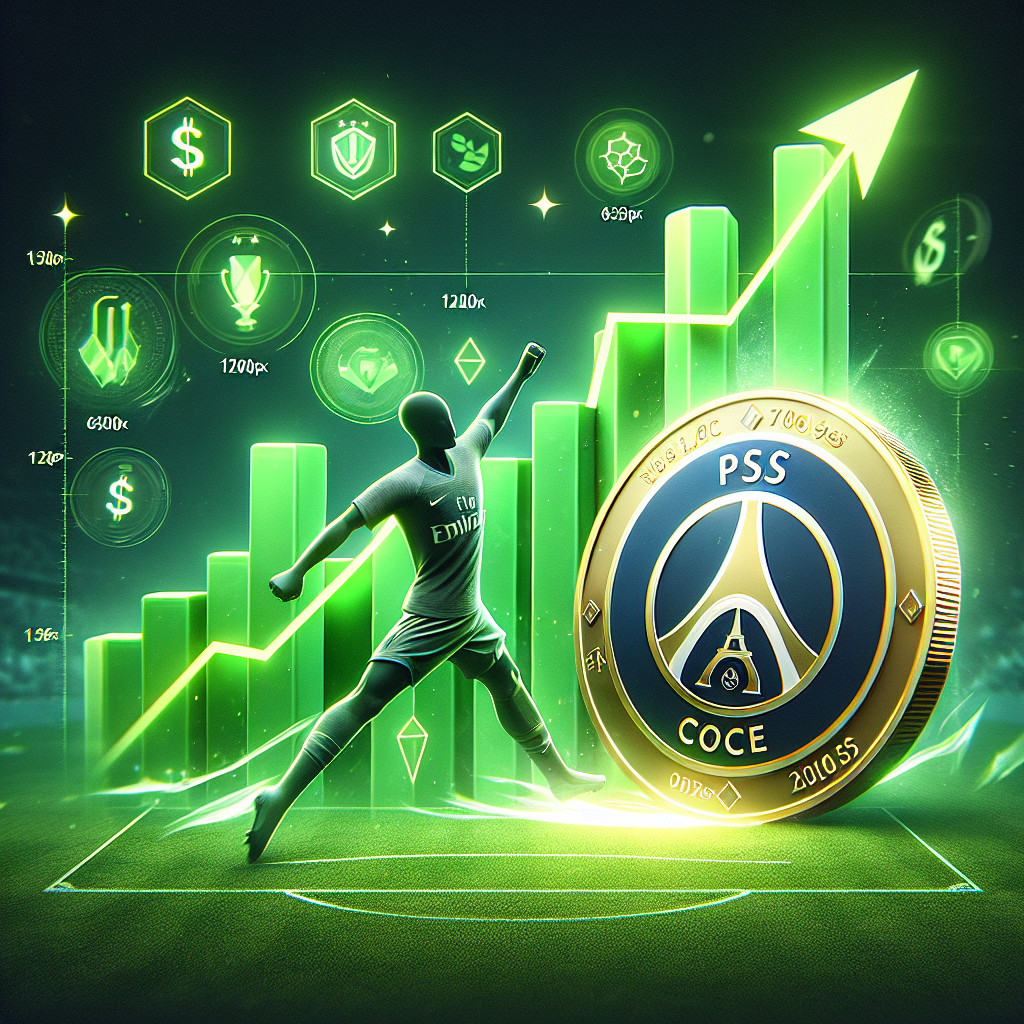Bitcoin
PSG Fan Token Soars 19% Following Dominant Champions League Win Against Inter Milan

The fan token associated with the renowned French football club Paris Saint-Germain (PSG) experienced a notable uptick of approximately 18%, climbing from $1.98 to $2.34. This increase follows an emphatic 5-0 victory against Inter Milan during a highly anticipated Champions League match, which undoubtedly exhilarated the club’s supporters and fueled renewed interest in the token.
This surge is particularly striking considering the context of the token’s recent performance. Prior to this dramatic rebound, the PSG fan token had encountered a downturn, suffering a significant decline of nearly 28.5% between May 30 and June 1. The downturn was likely attributed to a mix of broader market trends influencing cryptocurrency valuations and specific concerns related to the volatility of fan tokens. The rebound following PSG’s victory highlights the correlation between sporting success and the performance of associated cryptocurrencies, a phenomenon that has become increasingly evident in recent years.
In an intriguing development, PSG indicated its commitment to blockchain technology by integrating Bitcoin into its treasury management strategy. This strategic move occurred shortly after the match, emphasizing the club’s forward-thinking approach to digital currencies in the sports industry. Utilizing Bitcoin not only diversifies PSG’s financial portfolio but also strengthens its reputation as a trailblazer in the evolving landscape of sports and cryptocurrency integration.
The growing popularity of fan tokens has shifted the dynamics of fan engagement in professional sports. Unlike traditional merchandise, fan tokens offer supporters a stake in club decisions, including poll participation on various issues. The appeal of direct interaction with club management has translated into robust trading activity for PSG’s fan token, especially following high-stakes matches like those in the Champions League.
Moreover, PSG’s thriving NFT (non-fungible token) market complements the fan token’s appeal. Club-branded digital collectibles have garnered attention and sales, aligning PSG with the trend of tokenizing sporting memorabilia. The dual strategy of fan tokens and NFTs represents an innovative approach to revenue generation that traditional merchandise sales might lack, indicating a shift in how fan engagement is commercially valued in the sports world.
As the sports industry continues to embrace the digital revolution, clubs like PSG are at the forefront of a more significant trend that blends sporting events with financial technology. This transformation is evidenced by increasing partnerships between sports organizations and blockchain companies, creating new pathways for fan interaction and revenue streams. The integration of cryptocurrencies into club finances not only reflects a growing acceptance among sports entities but also indicates a future where digital assets could play a critical role in shaping the operational foundations of professional sports.
Industry experts suggest that the fallout from PSG’s recent match victory could extend beyond mere sentimental value, significantly affecting market perceptions and fan engagement. Analysts and investors are keenly observing how fan behavior and sports outcomes influence the ever-changing dynamics of fan token markets. As such, PSG’s robust performance serves as a case study in the potential for sports success to impact cryptocurrency valuations.
Furthermore, the financial implications of fan token fluctuations are drawing attention from broader investment communities. Many investors perceive sports-related digital assets as emerging markets with the potential for high returns, albeit accompanied by significant risk. As more clubs explore opportunities within this space, the success of PSG’s token may inspire other teams to prioritize fan tokens alongside traditional sponsorship and merchandise strategies.
PSG’s impressive display on the pitch and the subsequent market reaction provide a timely reminder of the intertwined nature of sports and the digital economy. Supporters not only engage with their teams through traditional channels but also through evolving financial instruments that enhance their sense of participation. This multi-faceted interaction fosters a sense of community and loyalty, proving that modern fans seek more than just a fleeting connection to their favorite clubs.
Looking ahead, as PSG continues to innovate within the realm of cryptocurrency and fan engagement, it is poised to remain a pivotal player in defining the future of sports finance as it expands the intersection of athletic achievement and digital investment. Such developments will likely resonate across other sports organizations eager to harness the lucrative potential of cryptocurrencies and fan tokens in the increasingly competitive landscape of professional athletics.
-

 Press Releases1 year ago
Press Releases1 year agoGaming Technologies of the New Time!
-

 Altcoins10 months ago
Altcoins10 months agoBitcoin Declines Below $80K: deVere CEO Nigel Green Remains Bullish on Long-Term Outlook Following Strategic U.S. Bitcoin Reserve Announcement
-

 Bitcoin1 year ago
Bitcoin1 year agoBitcoin Surges Past $64K as SEI and POPCAT Lead Daily Crypto Gains on September 25
-

 Altcoins10 months ago
Altcoins10 months agoCalls for Enhanced Discussion on Bitcoin as Brazil’s Reserve Asset: A Move Towards ‘Internet’s Gold’
-

 Press Releases2 years ago
Press Releases2 years agoEvo Exchange: Redefining the Decentralized Exchange Landscape
-

 Bitcoin6 months ago
Bitcoin6 months agoGrayscale Investments Submits Draft Registration for IPO, Aiming for Public Trading in U.S.
-

 Press Releases1 year ago
Press Releases1 year agoCODE, a Newly Born Project Brings Decentralization Back to the Main Menu
-

 Bitcoin6 months ago
Bitcoin6 months agoPeter Schiff Critiques New Crypto Legislation, Claims Bitcoin (BTC) Gains are Short-Lived




